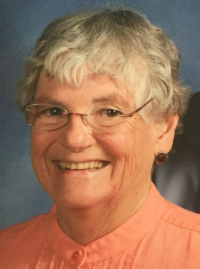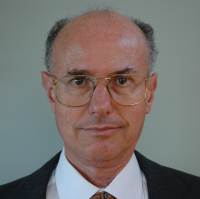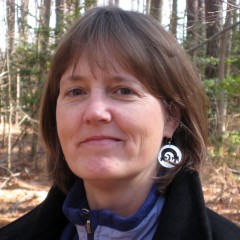
Keynote Speakers
We have some exciting speakers this year, as well as some remarkable award winners; like you, we're looking for the thought-provoking message's they'll bring to SIGCSE this year.
Karen Lee Ashcraft
Professor of Communication at the University of Colorado Boulder
Breaking the “Glass Slipper” of Technical Professions

Abstract
Occupations, like individuals, take on social identities such as gender and race. The social identity of an occupation has profound effects, for example, on wages and prestige, degree of professionalization, and ability to recruit and retain diverse populations. Sifting the historical evidence on technical work, Dr. Ashcraft develops a new concept—the “glass slipper”—which explains how durable associations between occupations and people arise and how they circulate among us like powerful brands. Despite appearances, this process is neither natural nor determined. It is political, however, revealing a reality more daunting than recent advice to “lean in” suggests. But if the social identities of occupations are strategically constructed, they also can be challenged through creative re-branding.Bio
Karen Lee Ashcraft is a Professor of Communication at the University of Colorado Boulder. Her research examines organizations and occupations, with a focus on relations of power and difference such as gender, race, sexuality, and class. Her past research explored the character and sustainability of counter-bureaucratic organization, resulting in several award-winning articles on the potential of hybrid organizational forms. Ashcraft’s recent research documents the evolution of professional identity in commercial aviation and other technical contexts. Her resulting development of the “glass slipper” received the 2013 Best Article of the Year Award from the Academy of Management Review. She has published some 50 articles and chapters on these and related themes in the journals of communication and management as well as work and organization studies. Her book with Dennis Mumby, Reworking Gender: A Feminist Communicology of Organization (2004, Sage), received the Book of the Year Award from the National Communication Association. Ashcraft regularly delivers talks and seminars to diverse audiences, including international academic and practitioner communities. She teaches undergraduate and graduate courses on gender and communication; gender, race, and work; organizational communication theory and practice; and qualitative research methods.Barbara Boucher Owens
Emeritus Professor of Computer Science
SIGCSE Award for Lifetime Service to the Computer Science Education Community

Abstract
“Service is the rent we pay for the space we take up on earth “, my dad’s mantra, and one used by many. Participating in professional organizations such as SIGCSE and its parent organization, ACM, has been for me an incredibly rewarding obligation. Many have given of their time and talents to help me on my way. Some of those who have followed in my footsteps have also forged paths of service making mine pale in comparison. This computer science education community affords incredibly rich opportunities for service in venues ranging from local to international. Service in SIGCSE and similar communities can reap untold benefits for both the volunteer and the community served.Bio
Barbara Boucher Owens retired in 2012 from the Computer Science Department at Southwestern University in Georgetown, Texas. She has been in the computing field since 1967 when she worked at IBM Research in Yorktown Heights, NY and later in San Jose, California, in the area of Computer Assisted Instruction. She began her teaching career in 1970 at Brooklyn College and was a founding member of its Computer Science Department in 1971. Barbara also has held tenured positions at Mercy College in Dobbs Ferry, New York, and St. Edward’s University in Austin, Texas. She spent a sabbatical teaching at Uppsala University in Uppsala, Sweden. She is an ACM Distinguished Educator, a past chair of the ACM Special Interest Group on Computer Science Education serving on its board for 16 years, a member of the ACM Council, the ACM Education Council, and until recently, the ACM Council on Women. She is a past-president of the Consortium for Computing Sciences in Colleges, and co-founder of its South Central Conference. She is co-leader of the Computing Educators Oral History Project (CEOHP) and an ABET evaluator. Locally, she serves on the board and is a founding member of the Friends of Georgetown Parks and Recreation, sings in her church choir, and teaches water aerobics for the City of Georgetown. She holds a PhD from NYU, MA from the University of Texas at Austin and BA from Ohio Wesleyan University and was the co-valedictorian of her high school class in Wauseon, Ohio. She and her husband Philip have two daughters, both of whom are in technology fields, and two granddaughters.John Sweller
Emeritus Professor of Educational Psychology

Abstract
Cognitive load theory uses our knowledge of human cognitive architecture to devise instructional procedures, most of which are directly relevant to computer science education. There are several basic aspects of human cognition that are critical to instructional design. First, based on evolutionary educational psychology, cognitive load theory assumes that most topics taught in educational and training institutions are ones that we have not specifically evolved to learn. Such topics require biologically secondary knowledge rather than the biologically primary knowledge that we have evolved to acquire. Second, these instructionally relevant topics require learners to acquire domain-specific rather than generic cognitive skills. Third, while generic cognitive knowledge does not require explicit instruction because we have evolved to acquire it, domain-specific concepts and skills that provide the content of educational syllabi, do require explicit instruction. These three factors interact with the well-known capacity and duration constraints of working memory and the unlimited capacity and duration characteristics of long-term memory to delineate a cognitive architecture relevant to instructional design. The working memory limits do not apply to biologically primary, generic knowledge acquired without explicit instruction but do apply to the biologically secondary, domain-specific knowledge that requires explicit instruction and that is relevant to computer science education. Human cognition when dealing with such knowledge constitutes a natural information processing system that has evolved to mimic the architecture of biological evolution. Cognitive load theory uses this architecture to generate a large range of instructional effects concerned with procedures for reducing extraneous working memory load in order to facilitate the acquisition of knowledge in long-term memory. This talk reviews the theory and indicates the instructional implications relevant to computer education.Bio
Dr. Sweller’s research reputation is associated with cognitive load theory, an instructional theory based on our knowledge of human cognitive architecture. He initiated work on the theory in the early 1980’s. Subsequently, “ownership” of the theory shifted to his research group at UNSW and then to a large group of international researchers. The theory is now a contributor to both research and debate on issues associated with human cognitive architecture, its links to evolution by natural selection, and the instructional design consequences that follow. It is one of the few theories to have generated a large range of novel instructional designs from our knowledge of human cognitive architecture. The following instructional design effects have flowed from cognitive load theory: goal-free, worked example, split-attention, redundancy, modality, element interactivity, isolated-interacting elements, imagination, expertise reversal, completion, variable examples, guidance fading, transient information and collective working memory effects. These effects have been studied by many groups of researchers from around the globe. Based on any commonly used citation index, the work has been cited on between 10,000 and 20,000 occasions.Jan Cuny
Program Officer, CISE BPC
SIGCSE Award for Outstanding Contributions to Computer Science Education

Abstract
Computer Science (CS) education has caught a wave – of media attention, public support, public/private commitments, broad-based participation by educators, and a surge in student enrollments at the undergraduate level. It is a startling change over just the last 5 years. Over that 5 years, much has been accomplished at the high school level. The Exploring Computer Science and Advanced Placement® CS Principles courses were created to engage and inspire a diverse mix of students. Hundreds of teachers and university faculty have collaborated to develop course materials, assessments, MOOCS, and models of teacher professional development. Over 2,000 high schools now offer new CS courses, but that leaves out more than 34,000. Even then, students will need more than a single course, they will need a K-16 CS pathway. At the K-8 level, CS does not have the decades of research on the teaching and learning that is available to many other, more established disciplines. A stronger evidence base is needed as the basis for pedagogy, curricula, standards, and teacher preparation. The CS community must put greater emphasis on research in CS education and broadening participation, and it must build stronger collaborations with researchers in related disciplines. Over the last 5 years, college-level CS departments have been inundated with students. This growth is fueled by a strong job market for CS majors and an increasing awareness that computation is fundamental to many other industry sectors and academic disciplines. How will departments cope with increasing numbers without sacrificing access or quality? How will they respond to increasing diversity—of ethnicity and gender, but also of interests, and career goals—of their students? For those interested in CS education, it’s an exciting time, but it comes with some urgency. This talk will discuss how to catch the current wave, using it to full advantage.Bio
Jan Cuny received her Ph.D. in Computer and Communication Sciences from the University of Michigan. She spent the next 20 years as a faculty member, at Purdue University, the University of Massachusetts, and the University of Oregon. Her research focused on massively concurrent computation, particularly on debugging tools and programming environment support for computational science.
Jan was a long time member, co-chair, and steering committee member of the Computing Research Association’s Committee on the Status of Women in Computing Research (CRA-W). That work led to her current position at the National Science Foundation (NSF), where she work to address the longstanding underrepresentation of women, African Americans, Hispanics, Native Americans, and persons with disabilities in computing. CS education is integral to broadening participation.
Focusing first K-12, Jan spearheaded NSF’s efforts to build foundational support for CS10K, a national initiative to get engaging, inclusive and rigorous computing courses into America’s public schools. Within this effort—named because its initial target was 10,000 teachers in10,000 schools—NSF funded the development of two new courses (Exploring Computer Science and Advanced Placement® CS Principles), course materials, assessments, models of scalable professional development, and an online community of practice for teachers. NSF is now partnering with private organizations to pilot and scale these courses with the goal of giving all U.S. students the opportunity to take great computer science courses in high school.
Additional efforts will be needed in diversifying and expanding K-8 and undergraduate education, and in building the CS education research enterprise.
Jan is a recipient of a 2006 ACM President’s Award, the 2007 CRA A. Nico Habermann Award, the 2009 Anita Borg Institute’s Woman of Vision Award, the 2014 Richard A. Tapia Achievement Award, and the University of Massachusetts School of Computing Alumni Award for Outstanding Contributions to Society.